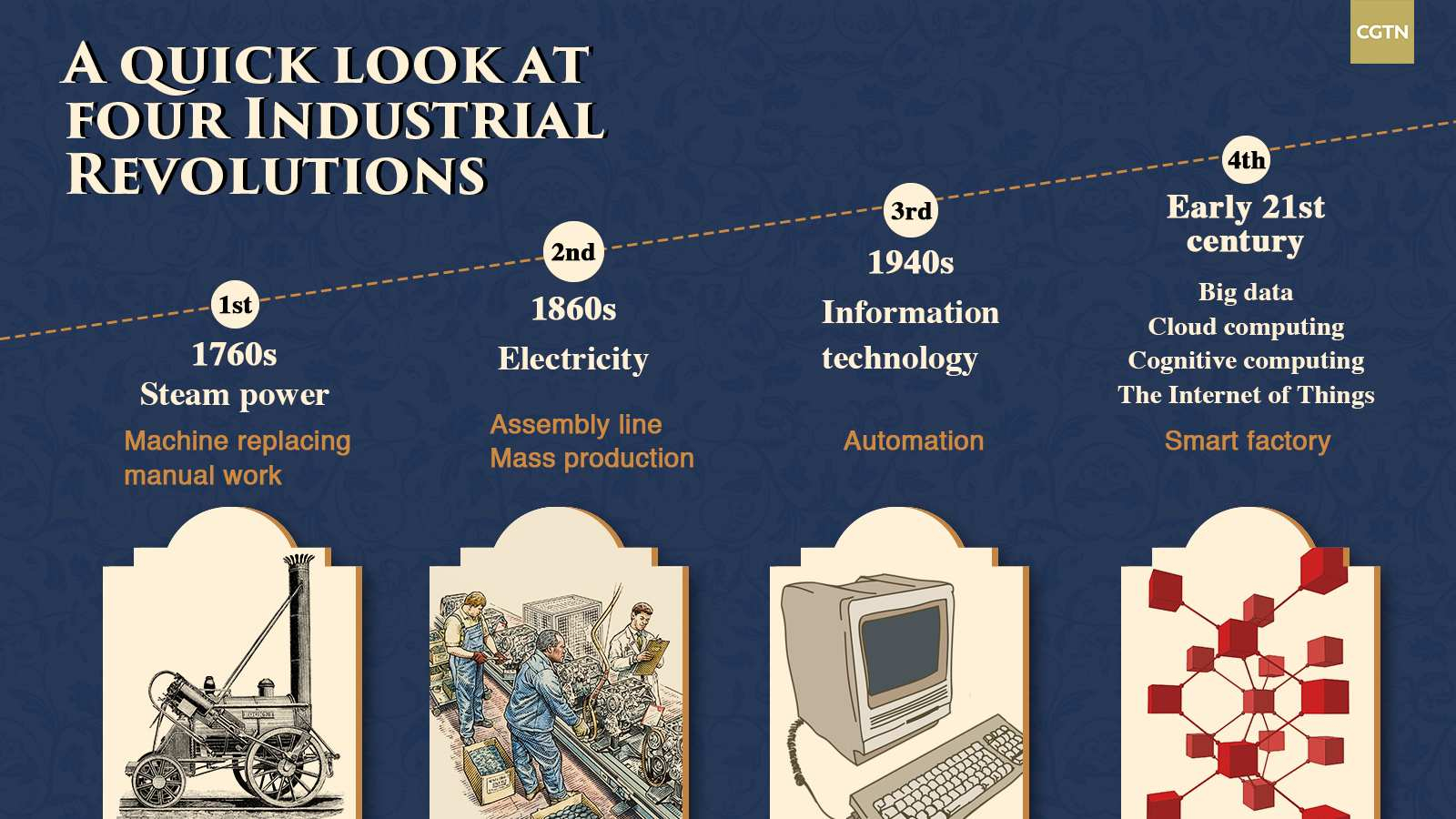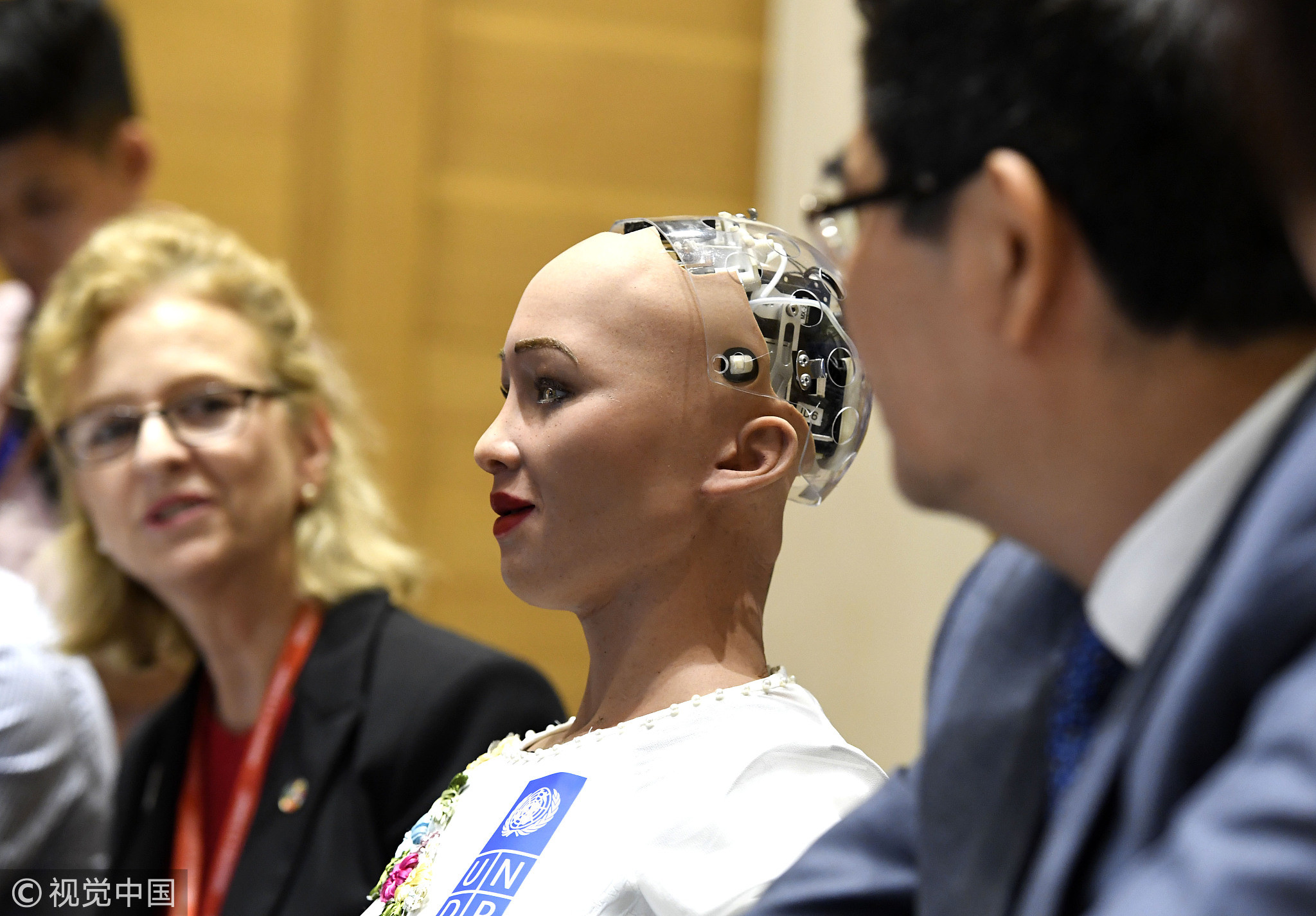
Opinions
14:21, 28-Jul-2018
Opinion: Will Industry 4.0 be an opportunity for developing countries to catch up?
Updated
13:38, 31-Jul-2018
Arison Tamfu

Editor's Note: Arison Tamfu is a multi-award winning journalist and West African editor of the Daily Reporter, as well as a freelancer for major regional and international news media. The article reflects the author's opinion, and not necessarily the views of CGTN.
Every day, the world is changing very fast. According to the founder of the World Economic Forum, Klaus Schwab, nothing matters to the world right now more than the Fourth Industrial Revolution (FIR).
The FIR expresses the notion of a technological revolution that will fundamentally alter the way we live, work, and relate to one another. It is happening already, especially in developed countries -- new technologies are developing with exponential velocity in breadth and depth.
The first, second and third industrial revolutions have not been too kind to developing countries, but the fourth industrial revolution might just be the moment for developing countries to lead the world. How they ride and respond with these new innovations will determine their future economic fortune.

CGTN infographic
CGTN infographic
Opportunities for developing countries
For developing countries, the revolution’s most exciting opportunity lies in its potential to raise income levels and improve their quality of life. To date, those who have gained the most from FIR have been consumers able to afford and access the digital world. Technology has made possible new products and services that increase the efficiency and pleasure of our personal lives. People are able to order a cab, book a flight, buy a product, and make a payment remotely.
The Fourth Industrial Revolution is also an investment in clean energy, an environmentally friendly, sustainable mode of development. In this regard, perhaps Africa is king. With abundant sunshine and wind, Africa is endowed with renewables, and this might just be where Africa will catch up with the developed world.
FIR may finally deliver electricity (and sufficiently so) to all of Africa because it no longer relies on centralized grid infrastructure. Homes in remote locations will have access to electricity. Children will be able to study at night. Meals can be cooked on safe stoves. Indoor air pollution can basically be eradicated.
Challenges
According to a recent Global Forum of National Advisory Councils held in Pretoria at the Council for Scientific and Industrial Research International Conference Centre Africa, the developing world will fall behind in FIR while countries like Japan will stay ahead of the curve. There are various studies that highlight the continent’s lack of preparation, including limited access to electricity, which affects approximately two-thirds of Africans.
Although most developing countries have committed to the development of science and technology, the initiatives have not been adequately implemented. Low research output from universities as well as insufficient intellectual property generation means that these countries are still ”innovation-poor.”
Unemployment remains a major challenge in developing countries, and new technologies will simply compound the situation. Driverless trucks, cabs and robots will mean the loss of thousands of jobs in a single city like Nairobi and the social effects will be devastating.
But the future can be wonderful for developing countries if planned well.

"Sophia the Robot" (C) created by Hanson Robotics addresses the forum at the Industry 4.0 summit on automation and manufacturing technologies in Hanoi on July 13, 2018. /VCG Photo
"Sophia the Robot" (C) created by Hanson Robotics addresses the forum at the Industry 4.0 summit on automation and manufacturing technologies in Hanoi on July 13, 2018. /VCG Photo
Getting Ready for FIR
Developing countries need to leapfrog because it not only promises to bring newly industrializing countries up to the level of the advanced countries but also to propel them into the lead in certain sectors – such as in greening technologies today in Africa and elsewhere.
There is an urgent need for youth development and vocational training to mitigate the risks posed by FIR in perpetuating unemployment and poverty in developing countries. Unlike the structures of traditional skills development, the bulk of the skills required are going to be in the semi-high levels, and there will also be greater demand for higher level skills at the university level.
Quality basic education needs to be prioritized as a means to complementing tertiary education and innovation, and school curricula should be reviewed to ensure that they adequately prepare young people for FIR and promote inclusive innovation.
Above all, developing countries need more pragmatic and innovative policies which take stock of the 21st Century.

SITEMAP
Copyright © 2018 CGTN. Beijing ICP prepared NO.16065310-3
Copyright © 2018 CGTN. Beijing ICP prepared NO.16065310-3